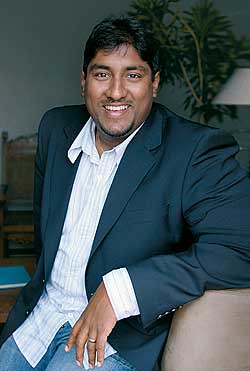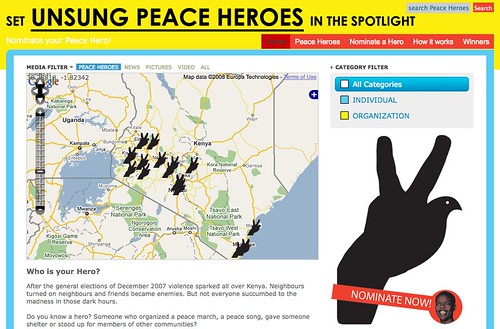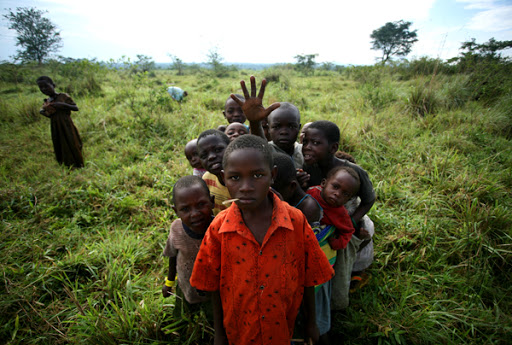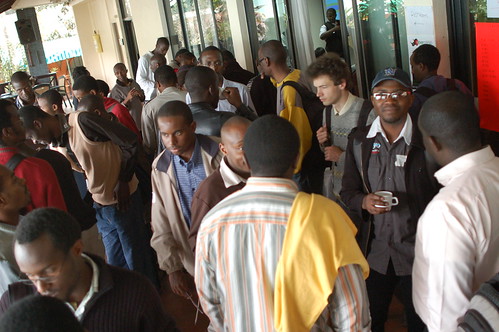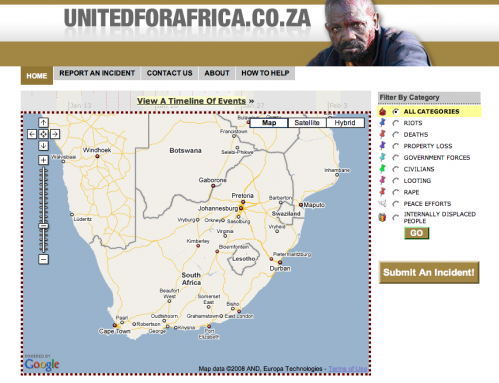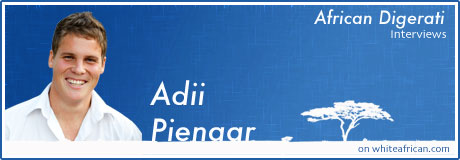
Adii Pienaar (aka Adii Rockstar) is the 7th in the African Digerati series of interviews. At only 24 he’s the youngest one on the list – he’s here because he represents the success that can be achieved as a young digital entrepreneur in Africa. Just under a year ago Woothemes splashed onto the stage as a new seller of WordPress (blogging tool) themes.
Rumor has it that this might be the most monetarily successful startup in the new media scene coming out of South Africa… That’s in less than one year. Regardless of whether that is true or not, the fact is that Woothemes is one of the top WordPress theme sites in the world, and it’s grown out of Africa with a lot of work, an eye for design and passion.
Woothemes just launched version 2 of itself, called WOO2. This interview is in response to that, and a chance to take a look at one of the visionaries behind it. After reading the interview, take a look at Adii’s blog. You’ll realize he’s light-hearted and doesn’t take himself to seriously, personality traits that I appreciate.
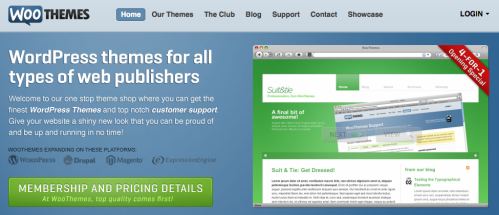
When was the seed of Woothemes planted in your mind, and what was it’s genesis? What caused you to go from idea to actually building something, and how did you do that?
I don’t really know… Magnus, Mark & I had been collaborating a bit more loosely and the business was growing quite steadily. So I think it was just a natural progression to formalize the collaborations into a business and brand it as WooThemes. Luckily for us, we had a good following at that stage and the foundations were good all round to launch WooThemes.
What inspires you?
Would I be egotistical to say that I inspire myself? 🙂 Honestly though, I’m inspired by a bunch of different things on a daily basis; and those things are random at best. The “being inspired” bit, along with willingness to act on said inspiration is a result of me absolutely loving a challenge and thus being completely driven to pursue those challenges.
Who are your biggest influences?
Online, I’ve got a lot of respect for entrepreneurs like Ryan Carson & Collis Ta’eed, who are at the top end of this new wave of entrepreneurs. Offline I’ve always appreciated Richard Branson’s way of going about business and marketing his ideas. And then closer to home… I’ve learned a helluva lot from both my business partners – Magnus & Mark – whilst I’d be lying if I said that my dad didn’t influence my business mind a lot – especially when I was younger.
Woo2 is a redesign of the Woothemes site and the community platform behind it. What are the big changes, and why do they matter?
Facing outwards, I think WOO2 signals our intent with regards to further growth and also improving the current experiences on WooThemes.
On a business level, I think WOO2 is more professional and we put a lot more strategic thinking into it. So again, it’s some kind of natural progression of how we’ve grown. WOO2 is the next step and the next part of the journey ahead.
Woothemes is expanding to other platforms beyond WordPress (Drupal, Expression Engine, etc.). What is your strategy here, and when will we start seeing these themes for different platforms?
The strategy is basically one that aims to diversify our offerings (and also our risk of having all our eggs in one basket), along with the growth aspects (new products = new markets = new users). And whilst I’m reluctant to commit to any schedule in this regard, we will start rolling out the Drupal themes in the next 2 / 3 weeks, and we’ve already started work on the EE & Magento stuff.
There’s always been the debate amongst the WordPress intelligensia about some theme providers not honoring the WordPress GPL licensing. iThemes, Brian Gardner and others have changed stances. I noticed you have as well. Is this where you wanted to go, or was it something that the greater community forced upon you? How will this help your business?
I can categorically say that this wasn’t something we did because we felt forced to do so. Way back in August 2008, I told Matt Mullenweg (at WordCamp SA) that going GPL was on the horizon for us and we’d do so when we felt comfortable doing so.
And as for how it will affect / help our business… I don’t know yet. We’ve only been GPL for a day, so I guess we’ll have to wait & see. 🙂
How big is Woothemes and how active is your community? Can you give any numbers?
This is tempting, but I’d rather not share these numbers… Maybe in the next couple of months, we’ll adopt a more open approach and share some of these numbers, but we’re not into boasting about supposed success.
I can however say that our support forum has racked up almost 45K posts, which means that the community is active. And our free themes (6 of them) have been downloaded about 35 000 times in the last month… 🙂
You’ve successfully created a web business out of South Africa that has impacted people around the world. You’re tapped into the web in a way that few others are. What’s next? What does the big picture look like from a the Rockstar perspective?
I’m taking over the world, one WordPress installation at a time.
LOL no… I’m very content with what I’m doing at the moment and very happy with the space & freedom that WooThemes has afforded me. I’m still young (24), so at this stage I’d like to think that I’m trying to revolutionize my own life, in terms of how I work and how I act outside of business hours. Beyond further growing WooThemes, that’s probably my main focus, because I want to do this now and not when I turn 30 / 40 and realize that I’ve work my life away.
And a shameless punt… I’m writing a book called Rockstar Business that basically airs my thoughts & experiences within this journey! 🙂
Finally, what are your thoughts on the impact of blogging in your own continent: Africa?
I’m ashamed to admit this, but Africa is generally a deep dark place for me (which I’m planning on rectifying with a proper journey into Africa – for holiday – later this year). So I’ve honestly not met many Africans who are bloggers.
BUT… In theory I think blogging gives everyone a voice; a voice they didn’t have before. And that’s true freedom & power for me, which we’ll ultimately see itself manifest when Africa becomes one of the strongest nations / economies in the world.
[Disclosure: I’m a customer of Woothemes, having purchased (full-price) one of their themes for the Maker Faire Africa website. I’m very happy with this too, everything is rock solid.]





